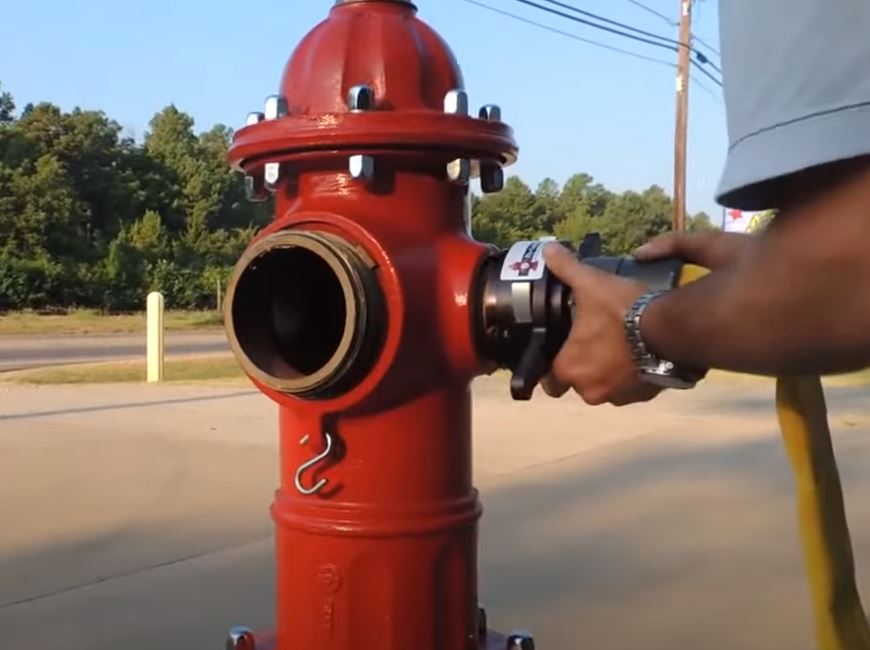
Firefighters Jeff Stroope established HyConn in 1999 and developed hoses’ quick-connect technology. This device sought to save emergency time. HyConn’s net worth swings as of 2024, reaching $5 million at times of peak. Still a classic from its Shark Tank look.
HyConn: Key Information
| Category | Details |
|---|---|
| Founder | Jeff Stroope |
| Founded | 1999 |
| Key Product | Quick-connect hose adapters |
| Shark Tank Deal | $1.25 million for 100% equity (deal fell through) |
| Net Worth | $5 million (peak valuation) |
| Primary Market | Fire departments, homeowners |
| Current Status | Semi-active; limited online availability |
Originality Derived from Need
Firefighters Jeff Stroope found flaws in conventional hose couplings. His annoyance resulted in the adaptation developed by HyConn. By allowing hoses to fast attach to hydrants in seconds, this quick-connect technology lowers reaction times and increases operational efficiency.
Pitch the Shark Tank
HyConn made Shark Tank debut in 2011. Stroope asked for a forty percent share in $500,000. Mark Cuban answered with $1.25 million for complete ownership. The agreement offered Stroope a three-year work contract. But license conflicts brought the deal down.
Growth Following Shark Tanks
HyConn became well-known even with the rejected offer. The business grew to reach US, Canada, and Costa Rica among other countries. It came to value $5 million by 2015. Online sales and trade exhibits kept it visible in the firefighting sector.
Scalable Difficulties
Production scaling proved challenging. Limited profitability results from high manufacturing costs and quality issues. Customer comments brought attention to durability problems that turned become a regular challenge. Dealing with these issues needed large design and material investments.
Market Position and Influence
Operating in the expectedly growing market of firefighting equipment is HyConn. Although its creative technology fills a gap, existing brand competition is still intense. The efficiency of HyConn’s quick-connect mechanism keeps drawing interest.
Financial Metrics and Insights
In its best years, HyConn brought in yearly income almost at $500,000. High manufacturing costs constrained profit margins. Estimates of possible income increase to $1 million yearly. But difficulties reaching scale hampered its long-term financial viability.
Wholesale Agreements and Public Relations
HyConn concentrated on wholesale distribution in order to increase its footprint. Specialty stores and retailers now have access to marketing support and reasonable prices. Though scaling remained a constant obstacle, trade show visits helped to deepen industry contacts.
Innovation and Technology
To perfect its quick-connect technology, HyConn extensively committed to R&D. The goal was to keep efficiency while yet extending the lifetime of products. These initiatives underlined the company’s dedication to creativity, but production costs stayed a constraint.
Legal and Operational Setbacks
One big blow came from differences on licensing with Mark Cuban. Stroope favored control over manufacturing; Cuban sought outsourcing of production. This tension made strategic alignment between founders and investors even more crucial.
Possibilities of Growth
HyConn still has chances for market expansion. Globally expanding and working with bigger stores could generate income. Materials and production techniques innovations could fix prior problems and set HyConn for success in both residential and firefighting sectors.
FAQs About HyConn
- What is HyConn’s current net worth?
It was valued at $5 million at its peak. - Who created HyConn?
Jeff Stroope, a firefighter and paramedic, founded the company. - Is HyConn still operational?
HyConn operates on a reduced scale, with some products available online. - What makes HyConn unique?
Its quick-connect technology allows faster hose connections, saving critical time. - Why did the Shark Tank deal fail?
Licensing disagreements between Jeff Stroope and Mark Cuban caused the deal to collapse.
